The Lavin Agency Speakers Bureau
A speakers bureau that represents the best original thinkers,
writers, and doers for speaking engagements.
A speakers bureau that represents the best original thinkers,
writers, and doers for speaking engagements.
We must extend empathy and compassion to the people who show us hostility and contempt.
Megan Phelps-Roper grew up in the Westboro Baptist Church: an infamously intolerant group. But engaging in open dialogue with strangers on Twitter showed her another life was possible—and, she escaped her home, family, and faith. In her memoir, Unfollow, she shares her fascinating journey even more deeply than in her major New Yorker profile and popular TED Talk. In her podcast, The Witch Trials of J.K. Rowling, she examines some of the most contentious issues of our time—like freedom of expression—through the life of the world’s most successful author. Phelps-Roper is a unique example of how empathy can overcome hate, and how acceptance can bridge ideology.
Phelps-Roper’s intelligence and compassion shine throughout with electric prose…For anyone interested in the power of rhetoric, belief, and family, [her] powerful, empathetic memoir will be a must-read.Publisher’s Weekly on Unfollow
Megan Phelps-Roper was raised within the virulent religious group The Westboro Baptist Church: known for picketing against the LGBT community, funeral services for soldiers, and nearly every other religious faith. By 2009, she was running the church’s Twitter account (as granddaughter of Fred Phelps, church founder, and daughter of Shirley Phelps-Roper, former church spokesperson, Megan played a central role in spreading its signature brand of hateful rhetoric to a global audience). However, after interacting with calm, civil, and genuinely empathetic individuals online—including one user who would eventually become her husband—Phelps-Roper began to question the dogmatic assertions of her faith and its celebrations of human tragedy. In 2012, she and her sister made the incredibly brave (and rare) decision to abandon their cloistered way of life, leave their family and home, and renounce their teachings.
Megan’s story is encouraging. It shows that we can harness the power of social media for good. That it can be a medium for gentle and patient conversation, that it can help us to find our share in humanity.Morgan Freeman, The Story of Us
Since then, Phelps-Roper has championed the power of empathetic dialogue to change minds and connect with those we may disagree with. Her inspiring, moving, and deeply human story of change is also the subject of her memoir, Unfollow: A Memoir of Loving and Leaving the Westboro Baptist Church. She’s appeared on Sarah Silverman’s Hulu series, I Love You, America, and on the National Geographic series The Story of Us, with Academy Award-winner Morgan Freeman. In her popular TED Talk, she shares how understanding and compassion can transform lives, even across the widest of ideological gulfs.
As a keynote speaker and educator, she engages with schools, faith groups, law enforcement, and anti-extremism organizations on strengthening human bonds through better public discourse. She has been covered by The New Yorker, The Guardian, VICE, The Globe and Mail, NPR, and other international organizations.
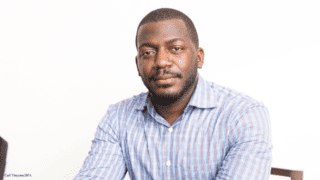
Author of The State Must Provide: The Definitive History of Racial Inequality in American Higher Education Staff Writer at The Atlantic
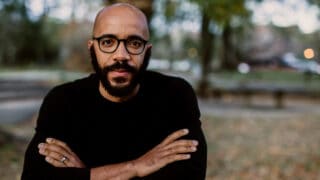
#1 New York Times Bestselling Author of How the Word Is Passed and Above Ground Atlantic Staff Writer
Author of Living in Data Former Library of Congress Innovator in Residence Former NYT Data Artist-in-Residence
Author of Living in Data Former Library of Congress Innovator in Residence Former NYT Data Artist-in-Residence
Psychologist and Author of The Village Effect and The Sexual Paradox
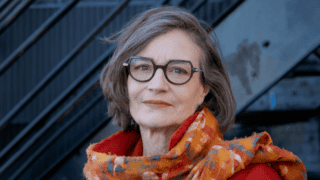
Anti-Ageism Activist Author of This Chair Rocks: A Manifesto Against Ageism
THEORETICAL PHYSICIST AND NOVELIST | INTERNATIONALLY BESTSELLING AUTHOR OF EINSTEIN'S DREAMS
Social justice comedian Director of The Muslims Are Coming! Author of How to Make White People Laugh
#1 New York Times bestselling author of Zealot and An American Martyr in Persia Distinguished Professor, UC Riverside

Author of Grit, the #1 New York Times Bestseller | Pioneering Researcher on Grit, Perseverance, and the Science of Success
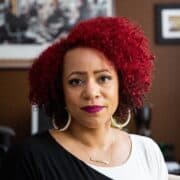
Pulitzer Prize-Winning Creator of The 1619 Project | Executive Producer of the Emmy Award-Winning 1619 Project Hulu Docuseries | MacArthur Genius
Nike's Former Chief Marketing Officer | Author of Emotion by Design

New York Times Bestselling Author Of All Boys Aren’t Blue and We Are Not Broken | Emmy Nominee | LGBTQIA+ Activist
CEO of The Atlantic | Former Editor-in-Chief of WIRED
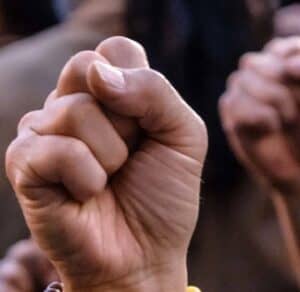
In this inspiring talk, Megan Phelps-Roper advocates for a better, more empathetic way to overcome disagreements—for engaged communication that not only heals wounds and forges bonds, but helps us expand our narrow perspectives.
Red states vs. blue states. So-called liberal elites vs. racist, misogynist trolls. Entrenched political divides. Impenetrable public stances. Online shaming and intimidation. These polemical forces dominate the zeitgeist (as Phelps-Roper discovered through the harrowing process of moving from zealotry to her new vocation: an anti-bullying, anti-extremism educator). But they also silo our communities and widen the gulfs between us. As she says: “Listening is not agreeing. Empathy is not a betrayal of one’s cause. These are tools of effective persuasion.” And this is the essence of her timely message—a nourishing defense of civil discourse, open inquiry, and consideration for those who challenge our points of view. Ultimately, it’s about approaching others for what they are: as human beings, full of frailty, full of potential. And in so doing, we extend to them the rarest of gifts: understanding, generosity, and compassion.